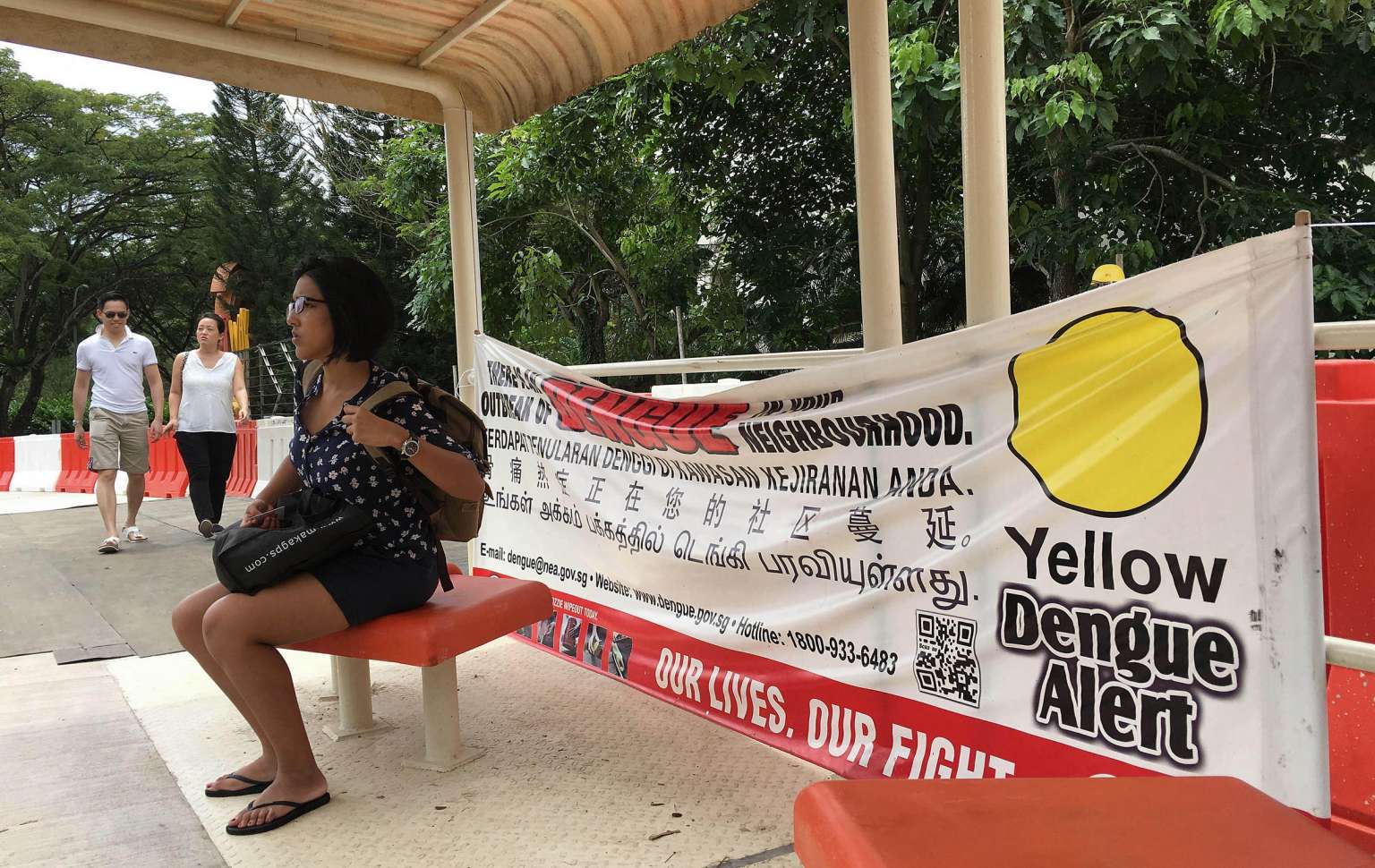Dengue could surpass 30,000 cases this year to hit a historic high
Sign up now: Get ST's newsletters delivered to your inbox

A Yellow Dengue Alert poster at a bus stop on Clementi Road.
ST PHOTO: MALCOLM MCLEOD
Samantha Boh
Follow topic:
SINGAPORE - The number of dengue cases this year could hit a historic high of over 30,000 cases unless immediate action is taken to suppress the Aedes mosquito population, the National Environment Agency (NEA) said at a media briefing on Thursday (Feb 18).
The highest number of dengue cases recorded in a year now stands at 22,170 cases, which was in 2013.
The El Nino phenomenon is the likely driver of the unusual high incidence of dengue cases in January. El Nino supports shorter maturation cycles and faster breeding, said the NEA.
In addition, the DEN-2 virus serotype now accounts for two-thirds of all dengue cases, replacing DEN-1 as the predominant strain. Historically a change in the predominant virus serotype is usually followed by a spike in dengue cases.
The exceptionally high number of cases this year has prompted the authorities to take early action in the fight against mosquitoes.
The Mozzie Wipeout Campaign, held usually around April, will now be brought forward to the end of this February. With a 50 per cent surge in the number of homes found to be breeding mosquitoes in the first few weeks of this year compared to last year, home owners have been urged to be on their guard.
About 5,000 grassroots volunteers will be trained to conduct house visits and educate residents on preventing mosquito breeding. This adds to the 5,800 already trained by the NEA.
As of Jan 31 this year, the NEA has conducted over 126,000 inspections islandwide and uncovered more than 1,900 instances of mosquito breeding.
There has been a 50 per cent increase in the number of mosquitos caught in the NEA's traps last month, compared to January last year.
So far 30,000 traps have been placed across 5,000 HDB blocks. Another 20,000 will be rolled out to the remaining 3,000 HDB blocks by June this year.
Dengue infections fell by 105 cases from the previous week to 420 cases last week. But the NEA and Ministry of Health said that the number of cases this year is still expected to be high due to warmer conditions, an increase in the mosquito population and a change in the dominant dengue virus .
There are now 115 active dengue clusters, with the biggest - in Yishun Ring Road - comprising 107 people being down with the disease.

